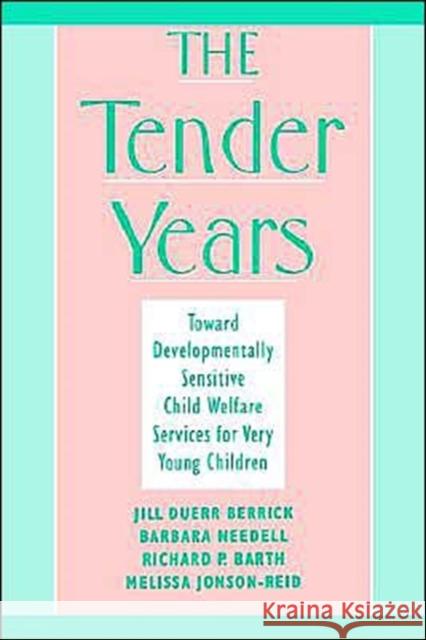The Tender Years » książka
The Tender Years
ISBN-13: 9780195114539 / Angielski / Miękka / 1998 / 224 str.
The first few years of life are a time of unparalleled physical, intellectual, and emotional development. But they can also be a time of neglect and abuse: this is the period when children are most likely to suffer mistreatment by their parents, and most likely to be placed in foster care. Today most children entering the child welfare system are very young, and, in most large states, infants are the largest group of children entering foster care each year. Social service systems are typically not designed for very young children, however, and therefore fail to serve their special needs. This shortcoming is significant because protecting very young children from physical harm is not enough; they must also be protected from developmental harm.
The Tender Years is the first textbook to address this critical situation. Beginning with an overview of child development theory, it examines child abuse reporting patterns and discusses placement in foster care, reunification, and adoption. It also looks at public child welfare practice, featuring vivid examples of the children and families served by this system. The authors analyze the differences between the foster care experiences of very young children and those of older children, with special emphasis on the way the child welfare system deals with infants. Based on a significant body of evidence regarding young children's unique affective, physical, and cognitive development, this text illuminates the interrelationship of child welfare practice, child development outcomes, and public policy. The authors offer a fundamental framework for decision-making in child welfare when young children are involved, and recommend specific changes in policy and practice aimed at moving the system toward greater developmental sensitivity.
Timely and provocative, The Tender Years is essential reading for courses in child welfare, social work with children, and social work with the family, as well as a valuable resource for child welfare administrators and policy makers.











